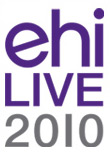Summary Care Record given go-ahead
- 11 October 2010
The Summary Care Record is to go ahead, but its content will be limited to core information and an opt-out form will be included in patient information packs.
The Department of Health has published the results of two simultaneous reviews of the SCR, covering the content of the record and the information patients receive before their record is uploaded.
The reviews were set up by the coalition government this summer, following concerns about patients’ awareness of the SCR and the kind of information added to it. This had led to the suspension of further patient information programmes.
The review of the content of the record, led by NHS medical director Sir Bruce Keogh, concluded that the core record should only contain a patient’s demographic details, medications, allergies and adverse reactions, and that these should continue to be copied from the GP’s medical record.
The review group said the DH should only consider expanding the content of the record “when we have built trust in the system and when patients request that we should do so.”
Sir Bruce said: “In an advanced national health system, it is reasonable for citizens to expect that when they arrive in accident and emergency or require treatment out of hours, the clinicians treating them have access to enough basic medical information to prevent anyone making wrong or even dangerous decisions.”
The separate Patient Information and Preference Review group, led by national director of patient and public affairs Joan Saddler, concluded that an opt-out form should be included in the patient information packs, and that these should also be simplified.
It said services such as HealthSpace should also continue to provide access to SCRs.
Almost 30m patients have already received information about the SCR but the review concluded that there should be no requirement to send another letter to those patients.
However, it said but there should be awareness raising campaigns at local, regional and national levels to ensure patients realise that an SCR is being created for them unless they choose to opt out.
Health minister Simon Burns said he was pleased that a consensus had emerged about the importance of the SCR in supporting safe patient care, so long as the content of the record was limited to core information.
He added: “Coupled with improvements to communication with patients which reinforce their right to opt out, we believe this draws a line under the controversies that the SCR has generated up to now.
"We see this review as having taking a significant step towards the goal of patients owning their records and using them to share decision-making with healthcare professionals.”
A BMA spokesperson said: "We welcome the progress that has been made towards an emergency electronic record that supports urgent care, yet recognises many of the understandable concerns of patients and clinicians.
"Much will depend on the way the amended scheme is put into practice, and the BMA looks forward to continuing our work with government on its implementation. It is essential that patients have genuine control over who has access to their records, and when changes are made to them."
The review groups concluded that patients should play a key role in deciding the evolution of the record and that new arrangements should be introduced to define responsibility for decisions about the introduction of any new content to the record.
They said the principle should be that any change to the scope of the record should be driven by citizens and patients with appropriate advice from professional bodies and in line with the IT capability.
Saddler said the availability of core information when patients need care was essential if patients were to be at the heart of care but it should also be easy for patients to opt-out.
She added:”Patients must be the ones who decide if any additional information should be included in their SCR, supported by appropriate professionals. This is the only way we will build trust in the SCR and its use.”
The SCR Content Review group said standards should be defined to support a patient’s wish to add information to their SCR such as end of life preferences, a care plan for patients with long term conditions or the inclusion of a patient’s significant medical history.
The review groups, which between them took evidence from almost 50 bodies, said it had heard strong opinions that the use of smartcards was not universal within GP practices which had implications for accurate updating of the SCR.
The reviews said use of smartcards was outside their remit but recommended that further options were investigated to mitigate the risk of practices not using smartcards.
The review group on Patient information and Preferences also recommended that the outer envelope that patients receive should have clear emphasis that the information contained in the envelope is about “Your health records, you need to make a choice.”
John Heyworth, president of the College of Emergency Medicine, said the college welcomed the decision to proceed with the SCR.
He added: “Clinicians working in emergency departments are currently often deprived of key background and patient information, particularly during the initial phase of time critical treatment and this may significantly compromise the quality and safety of care provided.
"Immediate access to such records will lead to better and safer care for our emergency patients.”
The review’s conclusions were backed by a range of bodies including the Patients’ Assocation, The Royal College of Nursing, Asthma UK and Sue Ryder Care.

Health minister Simon Burns will be speaking at EHI Live 2010, as will Professor Trisha Greenhalgh, who led an important, independent review of the Summary Care Record that found few benefits in the areas in which it is being piloted.
Online registration for the event, which will be held at the NEC in Birmingham from 8-9 November, is now open.




